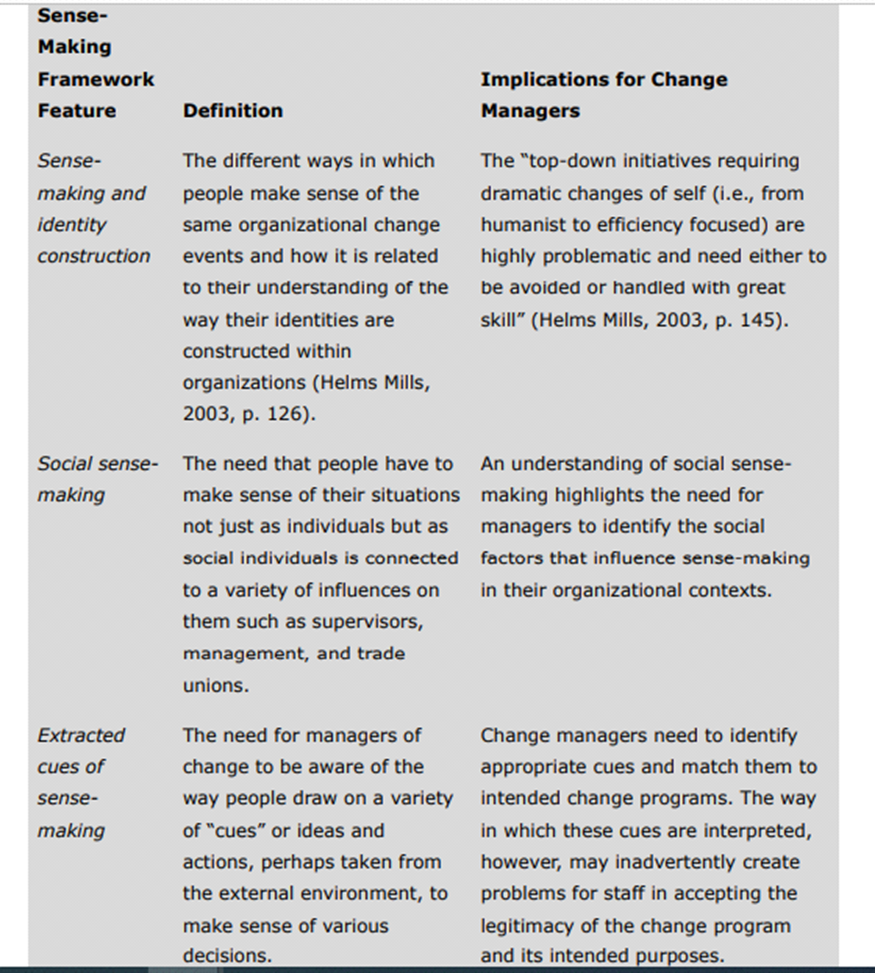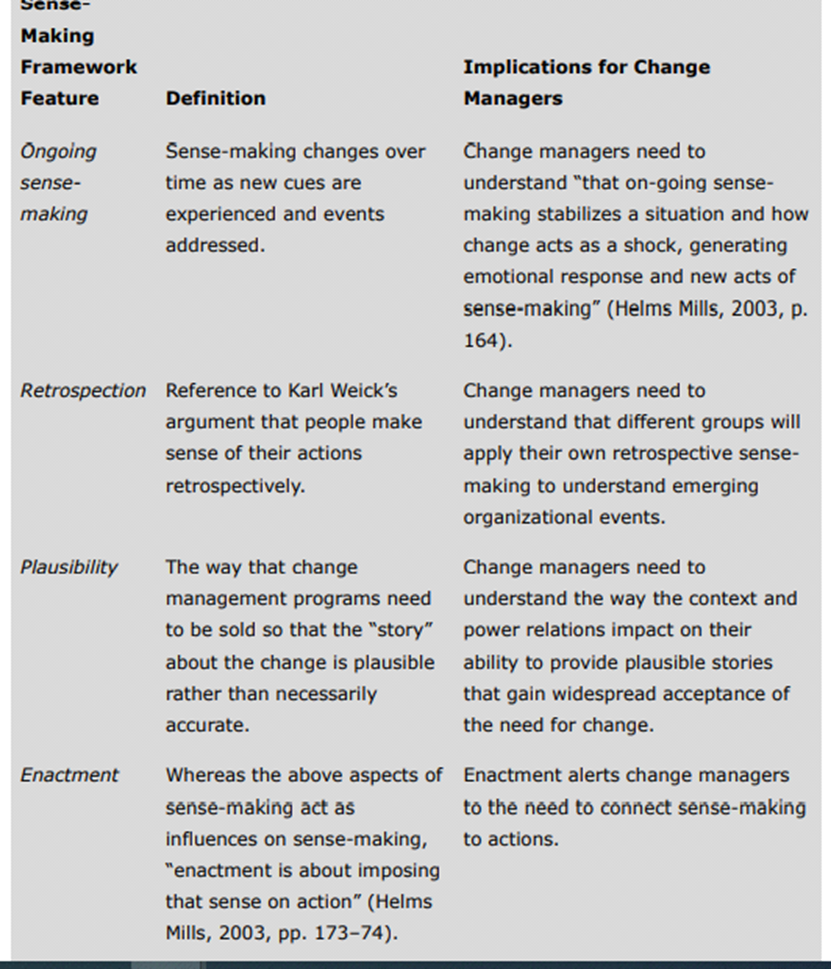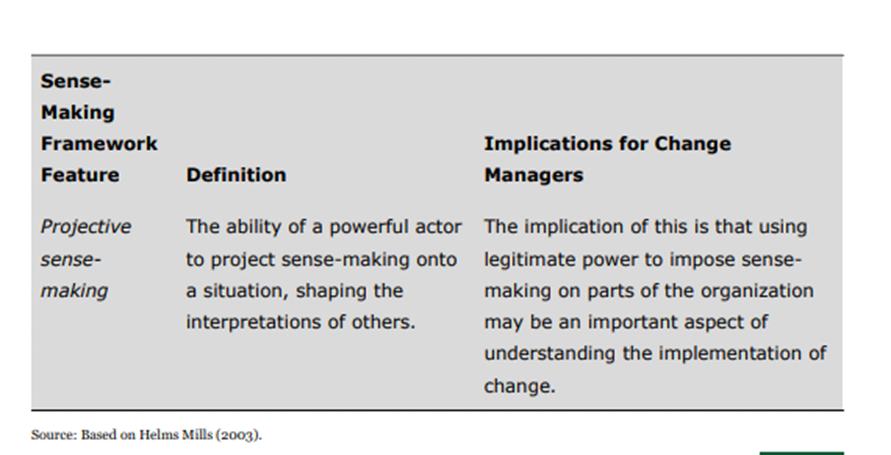Answered step by step
Verified Expert Solution
Question
1 Approved Answer
Sense- Making Framework Feature Sense- making and identity construction Social sense- making Extracted cues of sense- making Definition The different ways in which people



Sense- Making Framework Feature Sense- making and identity construction Social sense- making Extracted cues of sense- making Definition The different ways in which people make sense of the same organizational change events and how it is related to their understanding of the way their identities are constructed within organizations (Helms Mills, 2003, p. 126). The need that people have to make sense of their situations not just as individuals but as social individuals is connected to a variety of influences on them such as supervisors, management, and trade unions. The need for managers of change to be aware of the way people draw on a variety of "cues" or ideas and actions, perhaps taken from the external environment, to make sense of various decisions. Implications for Change Managers The "top-down initiatives requiring dramatic changes of self (i.e., from humanist to efficiency focused) are highly problematic and need either to be avoided or handled with great skill" (Helms Mills, 2003, p. 145). An understanding of social sense- making highlights the need for managers to identify the social factors that influence sense-making in their organizational contexts. Change managers need to identify appropriate cues and match them to intended change programs. The way in which these cues are interpreted, however, may inadvertently create problems for staff in accepting the legitimacy of the change program and its intended purposes. Sense- Making Framework Definition Sense-making changes over Feature Ongoing sense- making time as new cues are experienced and events addressed. Retrospection Reference to Karl Weick's Plausibility Enactment argument that people make sense of their actions retrospectively. The way that change management programs need to be sold so that the "story" about the change is plausible rather than necessarily accurate. Implications for Change Managers Change managers need to understand "that on-going sense- making stabilizes a situation and how change acts as a shock, generating emotional response and new acts of sense-making" (Helms Mills, 2003, p. 164). Change managers need to understand that different groups will apply their own retrospective sense- making to understand emerging organizational events. Change managers need to understand the way the context and power relations impact on their ability to provide plausible stories that gain widespread acceptance of the need for change. Whereas the above aspects of Enactment alerts change managers sense-making act as to the need to connect sense-making influences on sense-making, "enactment is about imposing that sense on action" (Helms Mills, 2003, pp. 173-74). to actions. Sense- Making Framework Feature Projective sense- making Definition The ability of a powerful actor to project sense-making onto a situation, shaping the interpretations of others. Implications for Change Managers The implication of this is that using legitimate power to impose sense- making on parts of the organization may be an important aspect of understanding the implementation of change. Source: Based on Helms Mills (2003).
Step by Step Solution
There are 3 Steps involved in it
Step: 1

Get Instant Access to Expert-Tailored Solutions
See step-by-step solutions with expert insights and AI powered tools for academic success
Step: 2

Step: 3

Ace Your Homework with AI
Get the answers you need in no time with our AI-driven, step-by-step assistance
Get Started


